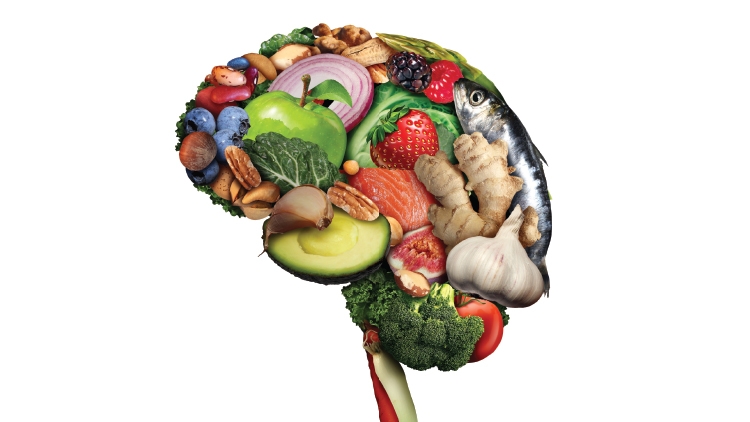Does Food Affect Your Mental Health?
Food can affect not only your body but also your mind. Nutrition is being studied as a very important player in the treatment of anxiety, depression and mood disorders. It is likely that poor diet quality predisposes people to mental illness. We are learning that a healthy gut is associated with a healthy brain. Choosing some foods and strategies at meal time can help you and your children achieve optimal mental well-being.
Getting to know which foods and nutrients are good for mental health is a good way for adults to offer their children the best choices possible. Remember it is your role to plan the menu and offer a variety of foods, but it is best to allow the child to decide if or how much of that food they will try and not try.
It is so important as a parent not to attach moral value to foods. Avoid labelling foods as good, bad, healthy or unhealthy. Food is for enjoyment and children should be free to follow their internal cues of hunger and fullness and explore food with all of their senses. Adding pressure and expectations on our children to eat certain foods can cause undue stress.
Tips for stress-free meals:
Ensure that you enjoy meals together as a family.
Be a role model but not a cheerleader at meal and snack time.
Healthy conversations around food include very simple facts and questions about their sensory qualities or origin (e.g. carrots are crunchy, oranges are juicy, bananas grow on trees, these are the tomatoes we bought at the farm).
Include your children in age appropriate meal preparation activities.
Include foods that highlight your culture and family traditions.
Try including the following foods in your family’s menu:
- Whole grains and complex carbohydrates like whole grain bread, pasta, cereal and crackers, brown rice, quinoa, potatoes, sweet potatoes and squash.
- Healthy fats like olive oil, canola oil, avocado, a variety of nuts, seeds, nut and seed butters.
- Fresh or frozen vegetables and fruit at most meals, especially dark green and orange.
- Protein-rich foods such as eggs, beans, lentils, fish, seafood, milk, yogurt, chicken, meat and wild game.
- Offer water and milk as primary drinks.
Limit deep fried or processed foods and sugary foods and beverages These foods are poor quality and linked to increased risk of mental illness, as well as other diseases.
For more information:
https://www.unlockfood.ca/en/Articles/Mental-Health/Mental-Health-FAQs.aspx
https://www.unlockfood.ca/en/Articles/Alcohol-and-smoking/Healthy-Habits-to-Cope-with-Stress.aspx
https://www.camh.ca/en/camh-news-and-stories/the-emerging-link-between-food-and-mental-health
https://cdhf.ca/health-lifestyle/mental-health-and-nutrition/
Submitted by Ginette Blake BASc RD on behalf to the Middlesex-London Community Early Years Partnership














